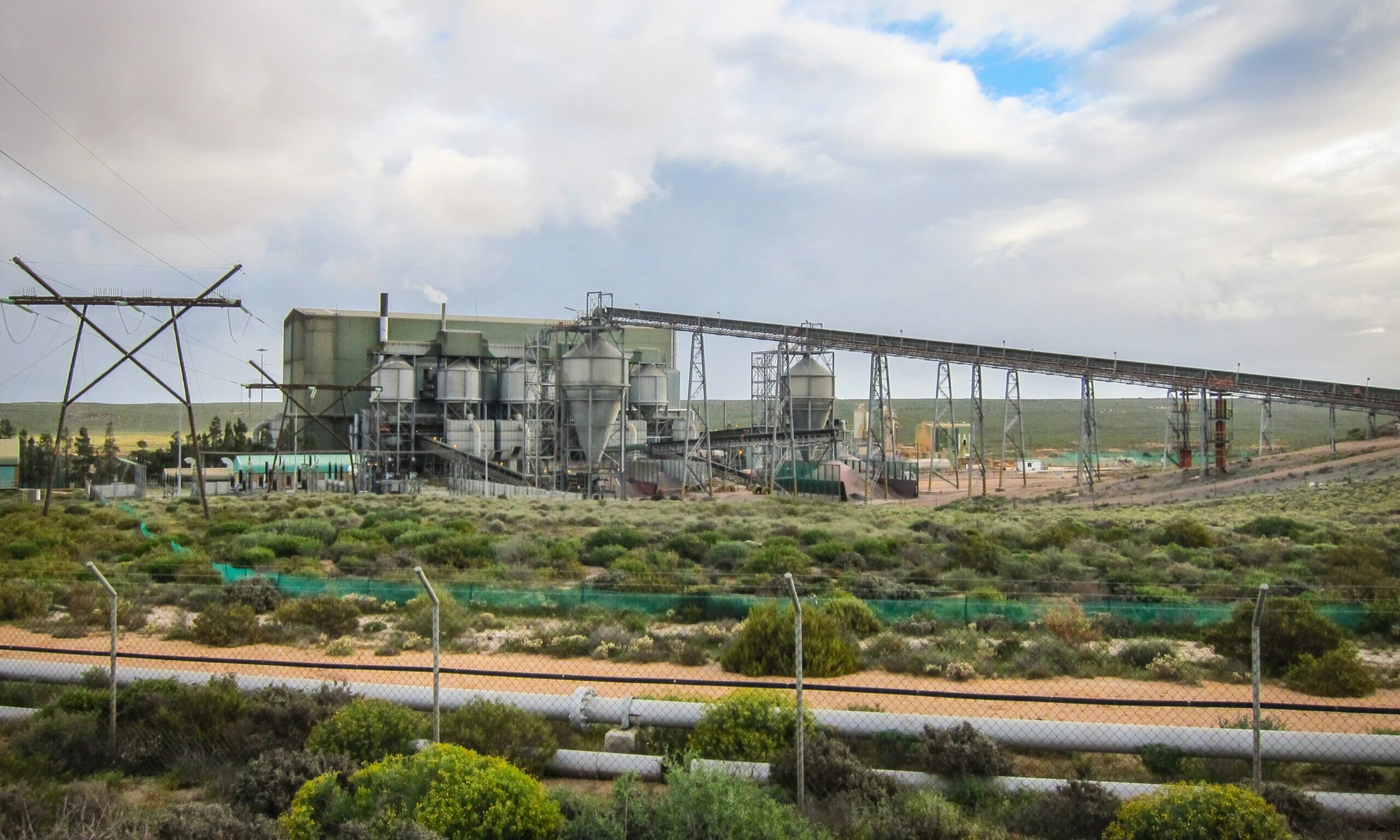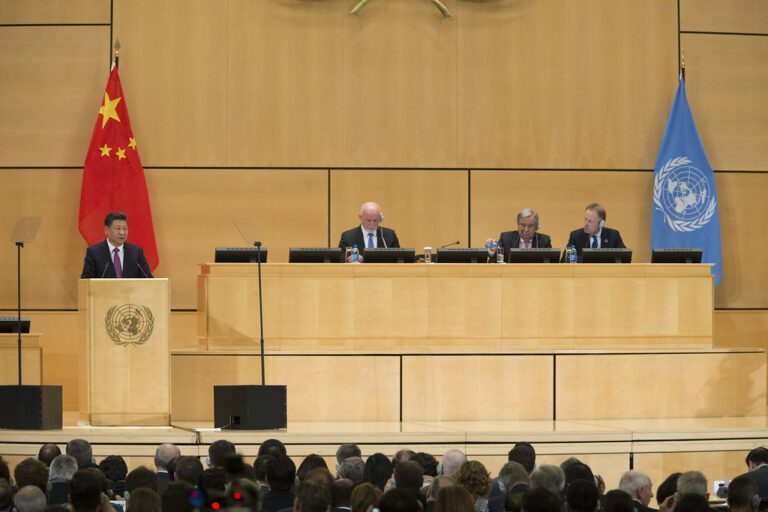
This article is based on a policy brief titled ‘Material world: How Europe can compete with China in the race for Africa’s critical materials’ originally published on November 7, 2024, by the European Council on Foreign Relations (ECFR).
Over the last two decades, China has expanded its control over global supply chains of critical raw materials (CRMs), most notably in refining and processing, but also in mining and manufacturing of high-end products like green energy technologies that CRMs enable. As tensions between Europe and China grow, Europe’s dependence on Chinese CRM supply chains has become a key vulnerability.
Europe’s green transition requires access to reliable supply chains for renewable energy technologies, including solar modules, wind turbines, and electric vehicle (EV) batteries. The production of these technologies requires a variety of CRMs, such as lithium, cobalt, and copper for EV batteries, and rare earth elements for the permanent magnets in wind turbines. As the EU’s heavy reliance on China for these critical materials and products undermines its energy (and broader green) transition, mitigating this dependency is vital not only for the bloc’s energy security, but also for maintaining its geopolitical and geoeconomic clout.
Partnerships with African Countries
Establishing CRM supply chains outside China – i.e., ex-China CRM supply chains – has therefore become a priority for the EU. This is reflected in initiatives like the Critical Raw Materials Act, which aims to reduce Europe’s import dependency on any single country while securing sustainable CRM supplies for its industry. Another key initiative is the Global Gateway, through which the EU seeks to mobilize €300 billion to boost European investments in energy, digital infrastructure, and transport globally, with these investments intended to help lower (or de-risk) Europe’s dependence on China.
Africa has emerged as a key player in this pursuit, with the continent holding around one-third of the world’s known mineral resources, including significant deposits of copper, lithium, cobalt, graphite, and rare earth elements. As such, the EU has directed its Global Gateway efforts toward CRM-rich African countries. This includes signing strategic partnerships with Namibia, Zambia, the Democratic Republic of the Congo (DRC), and Rwanda to develop sustainable CRM value chains in these countries. The EU has also joined the multi-stakeholder agreement to develop the Lobito Corridor, a railway project intended to connect Zambia, the DRC and Angola; the hope being that these partnerships will help Europe access the CRMs of these countries.
Despite these strategic partnerships, however, no new European investments in CRM mining or processing have materialized in these countries to date. It is therefore crucial to understand why this disconnect between EU aspirations and on-the-ground realities exists so that the EU can take a more effective approach toward accessing ex-China CRMs.
Why Are the EU Efforts Not Working?
My recent policy brief identifies and explores several factors contributing to this disconnect. First, although European public institutions set ambitious goals to de-risk Europe’s energy system from Chinese supply chains, it is up to the private sector to invest in CRM mining and processing activities in Africa. The number of European mining companies has declined significantly over the past few decades, with only a small number of them continuing to operate in Africa, and many viewing African countries as distant and unfamiliar investment locations.
Second, doing business in some African countries can be riskier and more costly for foreign investors compared to developed markets. Challenges include underdeveloped infrastructure, limited and/or expensive electricity, outdated or unclear legal frameworks, and inconsistent enforcement of legal obligations. European firms are also expected to comply with strict environmental, social, and governance (ESG) standards, which further contributes to their hesitation, as ESG compliance can be more difficult and costly in less developed environments. Chinese firms are not held to the same ESG standards, as they are not bound in a similar way by commitments to frameworks like the OECD Guidelines for Multinational Enterprises on Responsible Business Conduct.
Third, China’s dominance of CRM supply chains poses a major obstacle for others trying to enter the market or boost their market share in the corresponding activities. Over the past 15 years, Chinese companies have ramped up their CRM mining activities in Africa, exporting unprocessed ore to China. There, Chinese firms leverage their lower labor and electricity costs, along with generous state support, to process CRMs more cheaply than anywhere else. This has allowed Chinese firms to achieve greater economies of scale than its European competitors, further reducing their processing costs and solidifying their dominance. Indeed, even CRMs mined in Europe are frequently sent to China for processing because it is cheaper, and because European firms prefer to move the more polluting stages of CRM processing abroad. As a result, China now controls 60 percent of the global CRM production and 85 percent of the CRM processing capacity.
At the same time, China’s strategy extends beyond cost efficiency. By co-locating processing chains of various CRMs, China has been able to manufacture intermediate products like precursor cells more easily and cheaply. Over time, Chinese firms have also moved up the value chain to produce higher-end products using CRMs, with their economies of scale enabling them to do this at a lower cost than competitors. This has undercut manufacturers in Europe and created a situation where Europe now imports a staggering 90 percent of its solar modules from China.
Moreover, China’s dominance of CRM supply chains allows it to manipulate global prices. An oversupply of any CRM product from Chinese firms – be it lithium hydroxide or solar modules – can trigger a price collapse for that product worldwide. China could do this intentionally to drive European firms active in ex-China CRM processing activities into financial distress. China also defends its market domination in other ways, as exemplified by its export bans on technologies critical for separating rare earth elements, or their recent bans on gallium, germanium, and antimony exports to the US, all of which makes it significantly harder for the EU and the US to build alternative supply chains.
Europe Needs to Put Money on the Table
Amid escalating competition with China, the EU must offer stronger incentives to support European firms entering CRM mining and processing operations in Africa, as otherwise it may struggle accessing ex-China CRMs to de-risk its supply chains and boost European industry. Some form of price protection will be needed to protect European producers against price drops triggered by Chinese oversupply. This could take the form of price guarantees by European public financial institutions, ensuring a minimum price floor (and maximum price ceiling) for ex-China CRM products produced by European firms. Such an approach would remove some price volatility, creating more certainty and thereby facilitating long-term offtake agreements for European producers.
These guarantees will undoubtedly be costly but are essential to encourage European firms to (re-) enter CRM mining and processing activities in Africa. Europe cannot achieve its de-risking objectives without the active participation of its private sector, and such mechanisms are necessary to align European business interests with public policy goals. In this scramble for Africa’s critical minerals, the EU cannot afford not to act – its energy security, as well as its geopolitical future, including its economic and military strengths, are at stake.
Written by
Sarah Logan
Sarah Logan is a Visiting Fellow in the Africa programme at the European Council on Foreign Relations (ECFR). Her main research interests are in energy and investments in Africa, with a focus on more fragile settings. She is an economist and lawyer with significant experience working with African governments.


